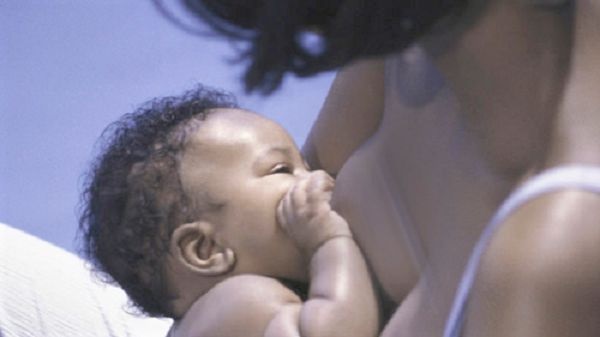
‘Accept exclusive breastfeeding to improve children’s health’
The World Health Organisation (WHO) defines breastfeeding as “the normal way of providing young infants with the nutrients they need for healthy growth and development.”
The international body recommends that colostrum, that is the yellowish sticky breast milk produced immediately after delivery, is the perfect food for the newborn and feeding should be initiated within the first hour after birth.
Advertisement
It, therefore, recommends exclusive breastfeeding up to six months of age, with continued breastfeeding along with appropriate complementary foods up to two years of age or beyond.
August 1 to 7 is observed annually as World Breastfeeding Week (WBW) and this year’s theme is on the theme: “Empower parents, enable breastfeeding.”
Accurate information
The WHO is encouraging all nursing mothers to breastfeed their babies, explaining that, “virtually all mothers can breastfeed, provided they have accurate information and the support of their family, the healthcare system and the society at large”.
The Ghana Multiple Indicator Cluster Survey (MICS) conducted in 2017/2018 by the Ghana Statistical Service (GSS), in collaboration with the Ministry of Health, the Ghana Health Service , Ministry of Sanitation and Water Resources, Ministry of Education and the Ministry of Gender, Children and Social Protection, has established that one in every two newborn babies is breastfed within the first hour of their life.
However, only four out of 10 children aged zero to five months are exclusively breastfed.
Cost of not breastfeeding
A report to mark the week-long celebrations by the World Alliance for Breastfeeding Action (WABA), on “The cost of not breastfeeding: global results from a new tool,” said 595,379 childhood deaths (six to 59 months) from diarrhoea and pneumonia each year could be attributed to mothers not breastfeeding their babies.
WABA is a global network of individuals and organisations dedicated to the protection, promotion and support of breastfeeding worldwide, It also estimates that 974,956 cases of childhood obesity could be attributed to mothers not breastfeeding their babies.
The report said for women breastfeeding, it was estimated to have the potential to prevent 98,243 deaths from breast and ovarian cancers, as well as type II diabetes each year.
The report says the level of avoidable morbidity and mortality translates into global health system treatment costs of US$1.1 billion annually.
It estimated the economic losses of premature child and women’s mortality to equal US$53.7 billion in future lost earnings each year.
Working mothers
According to WABA, breastfeeding reduced maternal and child morbidity and mortality, indicating that children who were breastfed had higher intelligence levels than those who were not.
It added that it was evident that breastfeeding was one of the best investments in saving lives and improving the health, social and economic development of individuals and nations.
However, the group observed that despite international recommendations, globally only 40 per cent of all babies under six months were exclusively breastfed with 45 per cent continuing breastfeeding up to 24 months.
The organisation also pointed out that globally, a mother’s return to paid work after childbirth was one of the leading reasons for early cessation of breastfeeding, as it estimated that more than 830 million women workers did not have adequate maternity protection.
It also stated that more than half of the global workforce, that is 61.2 per cent, made their living in the informal economy and were not covered by maternity protection policies.
The International Labour Organisation (ILO) reports that only 78 out of the 170 countries offer paternity leave, saying the lack of paternity leave limited the time fathers can spend with their partners and children after birth.
Family-friendly policies
In a message to mark the week, the Executive Director of United Nations Children’s Fund (UNICEF), Ms Henrietta H. Fore and the Director General of WHO, Dr Tedros Adhanom Ghebreyesus, in a joint release called for family-friendly policies such as paid parental leave.
They said family-friendly policies were particularly important for working parents as mothers needed time off from work to recover from birth and get breastfeeding off to a successful start, whereas time off work was also important for fathers.
GHS recommendations on breastfeeding:
• Breastfeeding should be initiated within the first 30 minutes of delivery.
• Give no other foods, water or herbal concoctions to baby before the start of breastfeeding.
• Breastfeed exclusively for the first six months (i.e give only breast milk, not even water or baby milk).
• Breastfeed on demand i.e. anytime baby or mother wants to feed.
• Start feeding baby with other foods from six months while breastfeeding continues.
• Continue breastfeeding with other foods until baby is 24 months old or more.
Writer's [email protected]



